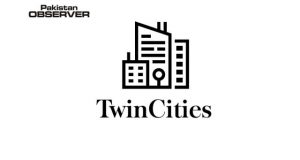Losses from floods can be compensated through learning from COVID-19 experience
Zubair Qureshi
Lessons on the recovery of Micro, Small and Medium Enterprises (MSMEs) from the unprecedented challenge of COVID-19 should be replicated and modified to strengthen response and recovery from large-scale loss incurred during current floods.
Joint Executive Director (JED) Sustainable Development Policy Institute (SDPI) Dr Vaqar Ahmed expressed these views at the launch of a study on “Micro, Small and Medium Enterprises amid Disaster: Lessons from Pakistan’s Experience.”
The research conducted jointly by SDPI and International Development Research Centre (IDRC) is based on 750 firms across the country with special focus on women-owned and women-led firms.
Among other factors, the study highlighted the impacts of supply chain and transmission disruption, resilience to bounce back, and efficacy of government interventions.
Dr Vaqar said that the study revealed that at the initial stages of crisis, there was a decrease in import-export, production and short-term consumption patterns along with liquidity squeeze and decline in capital and investment, which has left MSMEs struggling for survival.
He said that tax reforms and subsidies did not have much positive impact and majority SMEs could not avail public financial facilities due to lack of awareness, doubts, cumbersome transaction costs and process whereas informal borrowings remined highly preferred. He suggested that communication channels must be improved exponentially to improve the response to crisis.
He also recommended that transaction costs and time for registration of SMEs should be streamlined, and government should support resilience and recovery of SMEs through specific quotas.
Dr Arjan De. Haan, Senior Program Specialist, Sustainable Inclusive Economies, International Development Research Centre (IDRC) stressed the need to realize that governments and other stakeholders need well-researched data and policy recommendations to recover and develop resilience to COVID-19. He said that the research analyzed the impact of COVID-19 on MSMEs and utilizes gender perspective to further understand the impact on different stakeholders and women-led firms.
Faheem Sardar, Senior Policy Specialist, Prime Minister’s Office said that it is crucial to identify hidden disasters and crisis and solution to these issues. He informed the participants that the processing and clearance time in cross-border trade has been brought down to 24 hours after one-window operation was introduced. He further said that MSMEs must abide by “evolve or die” when it comes to e-commerce which has simplified and sped up interaction between seller and buyer. While there is tremendous growth in e-commerce, it is crucial to remember that it creates space for cyber-crimes, which is more than worth US$3 trillion per annum.
Ms Nadia J. Seth, General Manager, Policy and Planning Division, SMEDA said that 70% of SMEs are informal and unregistered which hinders their access to government facilities. Till March 2021, the State Bank of Pakistan has provided Rs 435 billion to SMEs through various COVID-19 relief and recovery initiatives, she said, adding that such initiatives are based on learnings from post-2010 flood initiatives.










